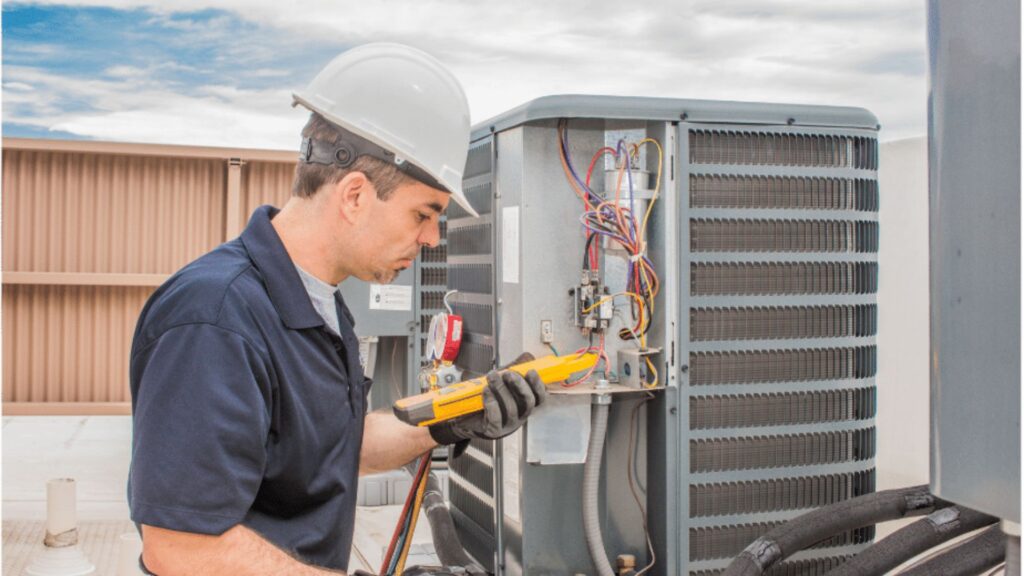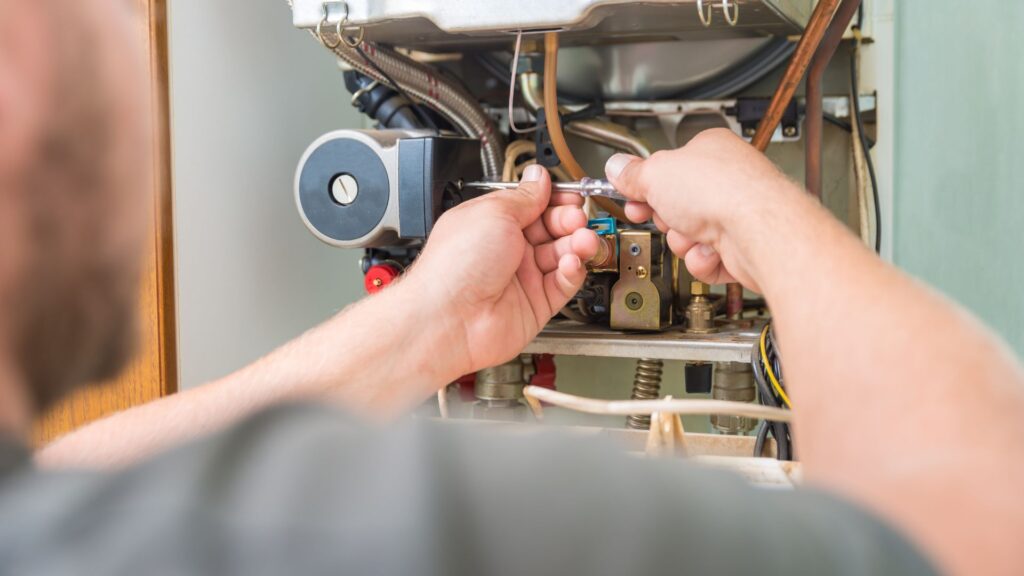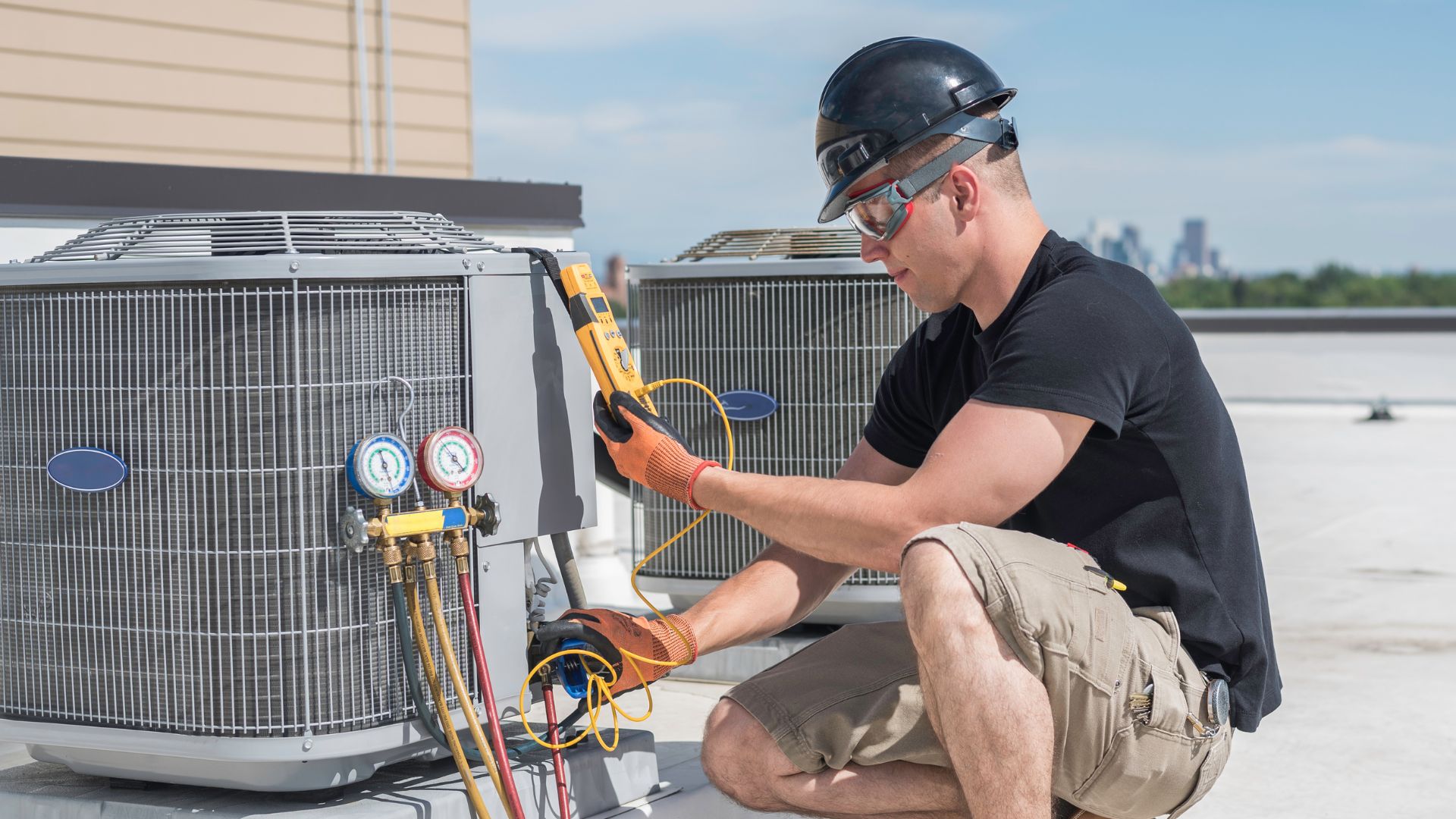Chesapeake’s coastal climate presents unique challenges for homeowners, particularly when maintaining an efficient HVAC system. With high humidity, salty air, and fluctuating temperatures, HVAC systems in this region must work harder to keep homes comfortable year-round. Understanding these challenges and how to address them can help extend the life of your heating and cooling system while improving energy efficiency.
The Impact of Humidity on Your HVAC System
Humidity levels in Chesapeake can be extremely high, especially during the summer months. Excess moisture in the air can cause various issues for HVAC systems, including:
- Increased Strain on Air Conditioners: HVAC units must work harder to remove moisture, leading to higher energy consumption and potential system breakdowns.
- Mold and Mildew Growth: Excess humidity creates an ideal environment for mold, which can clog HVAC components and reduce air quality.
- Reduced Efficiency: High humidity can make an HVAC system less efficient over time, leading to uneven cooling and higher energy bills.
How to Combat Humidity Issues

How Salt Air Affects HVAC Components
Living near the coast means exposure to salty air, which can accelerate the corrosion of HVAC components. Over time, this can lead to:
- Rust and Corrosion: Salt in the air can cause metal parts, such as coils and condenser units, to deteriorate more quickly.
- Reduced Lifespan of HVAC Units: Without proper care, corrosion can lead to premature failure of critical HVAC components.
- Higher Maintenance Costs: Frequent repairs and replacements may be necessary to keep the system running efficiently.
Protecting Your HVAC System from Salt Air Damage
To mitigate the impact of salt air, consider the following strategies:
- Use Protective Coatings: Applying an anti-corrosion coating to HVAC components can help extend their lifespan.
- Schedule Regular Cleaning: Rinsing the outdoor unit with fresh water can remove salt buildup.
- Invest in High-Quality Materials: Opt for HVAC systems with aluminum or coated coils, which resist corrosion better than standard copper coils.
Seasonal Temperature Fluctuations and HVAC Performance
Chesapeake experiences both hot summers and cold winters, meaning HVAC systems must be adaptable to extreme temperature changes. These fluctuations can:
- Cause System Overload: Constant adjustments between heating and cooling put additional strain on HVAC units.
- Increase Energy Consumption: HVAC systems work harder to maintain indoor comfort without proper insulation and maintenance.
- Lead to Uneven Heating and Cooling: Poorly maintained systems may struggle to regulate temperatures evenly throughout the home.
Optimizing Your HVAC System for Seasonal Changes

To ensure your HVAC system functions efficiently year-round, consider these tips:
- Upgrade to a Smart Thermostat: Smart thermostats optimize temperature settings based on real-time conditions, reducing energy waste.
- Schedule Seasonal Maintenance: Professional tune-ups in spring and fall can help identify potential issues before they become significant problems.
- Improve Insulation: Proper insulation reduces the load on HVAC systems, improving overall efficiency and comfort.
The Importance of Air Conditioning in Chesapeake’s Climate
A well-functioning air conditioning system is essential for Chesapeake’s hot and humid summers. Homeowners should maintain their AC units to avoid inefficiency and breakdowns. Common issues with air conditioners in coastal climates include:
- Refrigerant Leaks: High temperatures can cause AC units to work harder, increasing the risk of refrigerant leaks.
- Clogged Air Filters: Dust and debris can accumulate more quickly in humid environments, reducing airflow and efficiency.
- Compressor Failure: Constant usage without proper maintenance can lead to overheating and compressor failure.
Tips for Keeping Your Air Conditioner Running Efficiently
- Replace air filters regularly to improve airflow and indoor air quality.
- Schedule professional AC tune-ups before the summer season begins.
- Check for refrigerant leaks and ensure proper insulation around ducts.
How Chesapeake’s Winters Affect Your Furnace
While Chesapeake winters are relatively mild, homeowners still use furnaces to heat during colder months. The coastal climate can impact furnace performance in several ways:
- Salt Corrosion on Furnace Components: Like with AC units, salt in the air can corrode metal parts inside the furnace.
- Uneven Heating Issues: Older furnaces may struggle to maintain consistent temperatures, leading to cold spots in the home.
- Increased Energy Bills: If a furnace is not running efficiently, it can consume more energy to provide the same comfort level.
Furnace Maintenance Tips for Chesapeake Homes
- Clean and inspect furnace components regularly to prevent salt and dust buildup.
- Check and replace air filters to maintain good airflow and efficiency.
- Consider upgrading to an energy-efficient furnace for better performance and cost savings.

Best HVAC Solutions for Chesapeake’s Climate
Given the region’s climate challenges, homeowners should consider investing in energy-efficient HVAC solutions tailored to Chesapeake’s environment. Some of the best options include:
- Heat Pumps: Heat pumps are energy-efficient and provide heating and cooling, making them an excellent choice for fluctuating temperatures.
- Variable-Speed HVAC Systems: These systems adjust their speed based on demand, reducing energy waste and improving indoor comfort.
- High-Efficiency Air Filters: Filters with a high MERV rating help remove pollutants and allergens common in humid environments.
Keep Your Chesapeake HVAC System in Top Shape
Don’t let Chesapeake’s coastal climate damage your HVAC system. Regular maintenance, proper protection from humidity and salt air, and choosing the right HVAC solutions can significantly enhance efficiency and longevity. Schedule a professional HVAC inspection today to ensure your system is ready for the challenges of the Chesapeake climate.

